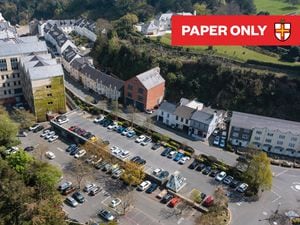Jersey watchdog has closed mobile market investigation
JERSEY and Guernsey watchdogs appear to have taken a different approach to allegations of competition breaches by JT and Sure.

The Guernsey Competition & Regulatory Authority has provisionally found the two telecoms providers infringed competition law in Guernsey, claiming they were secretly trying to divide up the Channel Island mobile network markets.
But the Jersey regulator, the Jersey Competition Regulatory Authority, closed an investigation into alleged breaches of its competition law by the two telcos without making a decision.
The GCRA has accused Sure and JT of collusion by sharing commercial information and agreeing secretly each operator would pull out of mobile services in the 'other island'.
That move would give each a stronger position in their ‘home’ islands through an anti-competitive arrangement.
The Guernsey competition regulator said this was not mobile network sharing but ‘market sharing between competitors, which is illegal’.
The comments sparked a robust response from JT and Sure, which said they were committed to competition and that the GCRA had come to the wrong conclusion. The telecoms providers now have until mid-June to respond.
The JCRA investigation began in July 2019, relating to ‘the arrangements between JT and Sure (and others) for sharing network elements in connection with the roll-out of 5G services on Jersey’.
The regulator said it took this course because ‘the parties had ceased the activity which was the subject of the investigation’, with Sure and JT also agreeing to new licence conditions.
These included a requirement to notify the JCRA in advance of entering any network asset sharing agreement with another operator, an ‘express requirement’ to comply with the law when sharing such assets and a proportionate compliance regime.
JCRA chief executive officer Tim Ringsdore said these measures had been designed to reduce the risk of such issues arising in the future.
‘The licence conditions impose clear obligations on JT and Sure to ensure that any use of shared assets or networks is fully compatible with healthy competition, benefiting consumers through lower prices and faster roll-out of new technology,’ said Mr Ringsdore.
He also set out plans to introduce the same provisions into the licences of other telecoms providers on Jersey.
No decision on the spectrum allocation or rollout of 5G networks in Jersey had been made either.
‘As far as the authority is aware, there are no network sharing agreements in place at this time. We will continue to work in conjunction with the government on the implementation of 5G in Jersey.’
Setting out more detail in regard to its action in this case, the JCRA said closing a case on ‘administrative priority’ did not involve taking any decision about whether an infringement had occurred.
Such a case could be reopened, with the earlier closure not limiting or foreclosing outcomes that might be reached.
Its ‘administrative decision’ also had no bearing on, or effect on, the parallel investigation in relation to Guernsey by the GCRA.
In its announcement, Guernsey’s competition regulator addressed the question of whether its findings related to the JCRA investigation: ‘The JCRA investigation related to the arrangements between JT and Sure for sharing network elements in connection with the roll-out of 5G services in Jersey.
'The GCRA decision does not relate to network sharing but market sharing.’
It also noted a memorandum of understanding between the two authorities provided a framework for the working relationship between the JCRA and GCRA, governing information sharing on matters of mutual interest.





